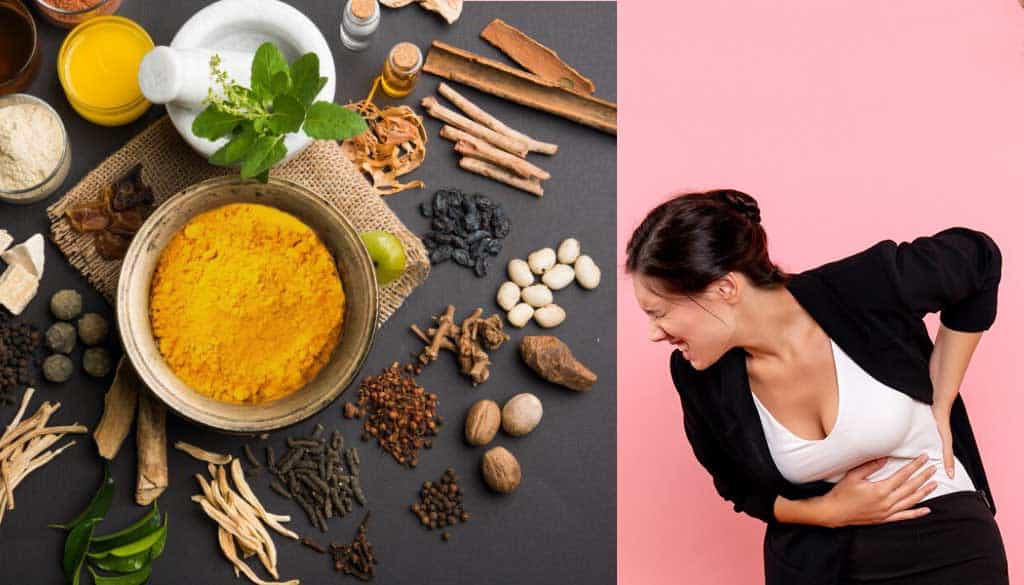31 Home Remedies for PCOD: Natural Ways to Alleviate Symptoms

If you’re one of the millions of women struggling with PCOD / PCOS, you know how frustrating it can be to manage the symptoms. From irregular periods and acne to weight gain and mood swings, PCOD / PCOS can take a toll on your physical and emotional health but did you know that there are several home remedies of PCOD that can help alleviate some of the symptoms of PCOD / PCOS? In this article, we’ll explore some of the most effective natural remedies of PCOD / PCOS and how they can help you improve your quality of life.
Natural remedies are the best way to reverse the effects of PCOD – Dr. Shikha Sharma
Here are 31 home remedies of PCOD / PCOS:
Vitamins and Minerals
Taking certain vitamins and minerals can help regulate hormone levels, improve insulin resistance, and reduce inflammation in the body. Here are some of the most important vitamins and minerals for PCOD / PCOS:
- Vitamin D : Research has shown that women with PCOD / PCOS are often deficient in vitamin D, which can lead to insulin resistance and other health issues. Taking a vitamin D supplement can help improve insulin sensitivity and regulate menstrual cycles.
- Combined Vitamin D and Calcium : Vitamin D and calcium are essential for bone health, but they also play a role in hormone regulation. Studies have shown that women with PCOD / PCOS are often deficient in vitamin D and calcium. Supplementing with combined vitamin D and calcium has been shown to improve insulin resistance and menstrual regularity in women with PCOD / PCOS.
- Iron : Some women with PCOD / PCOS experience heavy bleeding during their period, which can result in iron deficiency or anemia. If your doctor has diagnosed you with either condition, talk with them about how you can up your iron intake. Iron-rich foods like spinach, eggs, and broccoli are great options.
- Magnesium : Magnesium is essential for over 300 biochemical reactions in the body, including the regulation of insulin and glucose levels. Taking a magnesium supplement can help improve insulin resistance and reduce inflammation. Additionally, magnesium-rich foods like almonds, cashews, spinach, and bananas can also be beneficial for managing PCOD / PCOS symptoms.
- Zinc : Zinc is an essential mineral that is involved in many bodily functions, including hormone production and immune function. Zinc deficiency is common in women with PCOD / PCOS, and supplementing with zinc has been shown to improve insulin sensitivity, reduce inflammation, and regulate menstrual cycles in women with PCOD / PCOS.
Apple Cider Vinegar
Apple cider vinegar has many health benefits, including improving insulin sensitivity and reducing inflammation. It can also help regulate menstrual cycles and reduce acne. Here’s how to use apple cider vinegar for PCOD / PCOS:
- Mix 1-2 tablespoons of apple cider vinegar with water and drink it before meals.
- You can also add apple cider vinegar to your salad dressing or use it as a marinade for meat.
Coconut Oil
Coconut oil is a healthy fat that can help reduce inflammation and improve insulin sensitivity. It can also help regulate menstrual cycles and reduce acne. Here’s how to use coconut oil for PCOD / PCOS:
- Use coconut oil for cooking instead of vegetable oil or other unhealthy fats.
- Add coconut oil to your smoothies or coffee for a healthy boost of fat and flavor.
Turmeric
Turmeric is a spice that has anti-inflammatory and antioxidant properties. It can help reduce inflammation in the body and improve insulin sensitivity. Here’s how to use turmeric for PCOD / PCOS:
- Add turmeric to your cooking or take a turmeric supplement.
- You can also make a turmeric latte with coconut milk and honey for a healthy and delicious drink.
Evening Primrose Oil
Evening primrose oil is a natural source of omega-6 fatty acids, which can help reduce inflammation in the body. It can also help regulate menstrual cycles and reduce acne. Here’s how to use evening primrose oil for PCOD / PCOS:
- Take an evening primrose oil supplement daily.
- You can also use evening primrose oil topically for acne or other skin issues.
Green Tea
Green tea is a natural source of antioxidants and can help reduce inflammation in the body. It can also help regulate menstrual cycles and reduce acne. Here’s how to use green tea for PCOD / PCOS:
- Drink 2-3 cups of green tea daily.
- You can also use green tea topically for acne or other skin issues.
Aloe Vera Juice & Gel
Aloe vera has anti-inflammatory properties and can help improve insulin sensitivity. It can also help regulate menstrual cycles and reduce acne. Here’s how to use aloe vera for PCOD / PCOS:
- Drink aloe vera juice daily.
- You can also apply aloe vera gel topically for acne or other skin issues.
Amla Juice
Amla, also known as Indian gooseberry, is a natural source of vitamin C and can help improve insulin sensitivity. It can also help regulate menstrual cycles and reduce inflammation in the body. Here’s how to use amla for PCOD / PCOS:
- Drink amla juice daily.
- You can also use amla oil topically for hair and skin health.
Palm Jaggery
Palm jaggery is a natural sweetener that can help regulate insulin levels and improve glucose metabolism. It can also help reduce inflammation in the body. Here’s how to use palm jaggery for PCOD / PCOS:
- Use palm jaggery instead of refined sugar in your cooking and baking.
- You can also add palm jaggery to your tea or coffee.
Jeera Water
Jeera, also known as cumin, can help regulate insulin levels and improve digestion. Drinking jeera water can also help reduce inflammation in the body. Here’s how to make jeera water for PCOD / PCOS:
- Boil a teaspoon of jeera in water for 10 minutes.
- Strain the water and drink it daily.
Seeds
Certain seeds, such as flaxseeds and pumpkin seeds, are rich in omega-3 fatty acids and can help reduce inflammation in the body. They can also help regulate menstrual cycles and reduce acne. Here’s how to use seeds for PCOD / PCOS:
- Add seeds to your smoothies, salads, or yogurt.
- You can also snack on seeds throughout the day.
Saw Palmetto
Saw palmetto is an herbal supplement that can help regulate hormone levels in the body. It can also reduce inflammation and improve insulin sensitivity. Here’s how to use saw palmetto for PCOD / PCOS:
- Take a saw palmetto supplement daily.
- You can also use saw palmetto topically for hair and skin health.
Cinnamon And Honey
Cinnamon and honey have both been shown to improve insulin sensitivity and regulate menstrual cycles in women with PCOD / PCOS. Here’s how to use cinnamon and honey for PCOD / PCOS:
- Add cinnamon to your cooking or sprinkle it on your oatmeal or toast.
- Mix a teaspoon of honey and cinnamon in warm water and drink it daily.
Royal Jelly
Royal jelly is a nutrient-rich substance produced by honeybees and can help regulate hormone levels in the body. It can also improve insulin sensitivity and reduce inflammation. Here’s how to use royal jelly for PCOD / PCOS:
- Take a royal jelly supplement daily.
- You can also apply royal jelly topically for skin health.
Licorice Root
Licorice root can help regulate hormone levels and reduce inflammation in the body. It can also improve insulin sensitivity and reduce stress levels. Here’s how to use licorice root for PCOD / PCOS:
- Drink licorice root tea daily.
- You can also take licorice root supplements.
Mulethi
Mulethi, also known as licorice root, can help regulate hormone levels and reduce inflammation in the body. It can also improve insulin sensitivity and reduce stress levels. Here’s how to use mulethi for PCOD / PCOS:
- Drink mulethi tea daily.
- You can also take mulethi supplements.
Omega 3 Supplements or Fish Oil
Omega-3 supplements, such as fish oil, can help reduce inflammation in the body and improve insulin sensitivity. Here’s how to use omega-3 supplements for PCOD / PCOS:
- Take an omega-3 supplement or fish oil daily.
- You can also eat fatty fish, such as salmon or tuna.
Chamomile Tea
Chamomile tea can help reduce stress levels and improve sleep quality. It can also reduce inflammation in the body. Here’s how to use chamomile tea for PCOD / PCOS:
- Drink chamomile tea daily.
- You can also use chamomile oil topically for skin health.
Nirgundi or Chasteberry
Nirgundi, also known as vitex, can help regulate menstrual cycles and reduce symptoms such as acne and hair loss. It can also improve fertility and reduce inflammation. Here’s how to use nirgundi for PCOD / PCOS:
- Take a nirgundi supplement daily.
- You can also drink nirgundi tea.
Inositol
Inositol is a type of sugar that is found in many fruits and vegetables. It has been shown to improve insulin resistance and lower androgen levels in women with PCOD / PCOS. Inositol supplements are available in two forms: myo-inositol and D-chiro-inositol. Both forms have been shown to be effective in improving insulin resistance, menstrual regularity, and fertility in women with PCOD / PCOS.
Cod Liver Oil
Cod liver oil is a rich source of omega-3 fatty acids, which have anti-inflammatory properties. Studies have shown that supplementing with cod liver oil can help regulate menstrual cycles and reduce symptoms such as acne and hair loss in women with PCOD / PCOS.
Berberine
Berberine is a natural plant compound that has been used for centuries in traditional Chinese medicine. It has been shown to improve insulin sensitivity and reduce inflammation in women with PCOD / PCOS. Berberine supplements are available in capsule form, and they are a safe and effective way to manage the symptoms of PCOD / PCOS.
Maca Root
Maca root is a plant that grows in the Andes mountains of Peru. It has been used for centuries as a natural remedy for hormonal imbalances. Studies have shown that supplementing with maca root can help regulate menstrual cycles and improve fertility in women with PCOD / PCOS.
Ashwagandha
Ashwagandha is an adaptogen herb that has been used for centuries in traditional Ayurvedic medicine. It is known for its ability to reduce stress and improve hormone balance in the body. Studies have shown that supplementing with ashwagandha can help regulate menstrual cycles, reduce inflammation, and improve insulin resistance in women with PCOD / PCOS.
Holy Basil
Holy basil, also known as tulsi, is an herb that is commonly used in traditional Ayurvedic medicine. It has been shown to have anti-inflammatory and antioxidant properties, which can help reduce the symptoms of PCOD / PCOS. Studies have also shown that supplementing with holy basil can help regulate menstrual cycles and improve insulin sensitivity in women with PCOD / PCOS.
Tribulus Terrestris
Tribulus terrestris is a plant that has been used for centuries in traditional Ayurvedic medicine. It is known for its ability to improve fertility and libido. Studies have shown that supplementing with tribulus terrestris can help regulate menstrual cycles and reduce symptoms such as acne and hair loss in women with PCOD / PCOS.
Whole Foods
One of the best things you can do for your PCOD / PCOS symptoms is to focus on eating whole foods. Whole foods are free from artificial sugars, hormones, and preservatives, and are as close to their natural, unprocessed state as possible. Foods like fruits, vegetables, whole grains, and legumes are all excellent sources of whole foods that you can add to your diet.
Balance Carb and Protein Intake
Both carbohydrates and protein can impact your energy and hormone levels. Eating protein stimulates your body to produce insulin, while unprocessed, high-carb foods can improve insulin sensitivity. Instead of trying a low-carb diet, focus on getting enough healthy protein. Plant-based protein sources, such as nuts, legumes, and whole grains, are all great options for managing PCOD / PCOS symptoms.
Anti-inflammatory Foods
PCOD / PCOS is often characterized by low-level chronic inflammation, so adding anti-inflammatory foods to your diet can help ease your symptoms. Consider the Mediterranean diet as an option, as olive oil, tomatoes, leafy greens, fatty fish like mackerel and tuna, and tree nuts all fight inflammation.
Fiber
A diet high in fiber can help improve your digestion, which can be especially helpful for women with PCOD / PCOS. Foods like lentils, lima beans, broccoli, Brussels sprouts, pears, and avocados are all rich in fiber and can help ease symptoms.
Conclusion
PCOD / PCOS is a complex hormonal disorder that affects many women worldwide. While traditional treatments such as medication and surgery can help manage symptoms, incorporating natural remedies and lifestyle changes can also play a significant role in alleviating PCOD / PCOS symptoms. From incorporating vitamins and minerals, like zinc and omega-3 supplements, to incorporating anti-inflammatory foods like leafy greens and fatty fish, to adding whole foods and fiber to your diet, there are many natural remedies to consider. Additionally, balancing your carb and protein intake, upping your iron and magnesium intake, and considering supplements can also be helpful. By making these changes, you can take control of your health and feel your best.






Comments
Trackbacks & Pingbacks
[…] symptoms. However, dietary changes can help manage PCOS symptoms, and fiber is one of the most beneficial […]
[…] work and enjoy your daily life. In this post, we will discuss effective PCOS headaches management techniques that can help you alleviate pain and improve your quality of […]
[…] insulin sensitivity, and aiding in weight loss. For women with PCOS, ginger may be an effective natural remedy for managing symptoms and improving overall health. Incorporating ginger into your diet is easy and […]
[…] Aloe Vera is a succulent plant that is known for its medicinal properties. It has been used for centuries in traditional medicine to treat a range of ailments. Aloe Vera contains a gel-like substance that is rich in vitamins, minerals, and antioxidants. This gel has anti-inflammatory, antimicrobial, and wound-healing properties that make it a popular natural remedy. […]